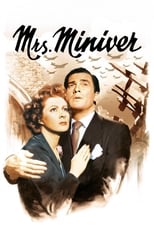barrymost
Sep 5, 2019
9/10
So many wonderful, talented actors and actresses in this, where do I begin? Here we have the magnificent line-up of Greer Garson, Walter Pidgeon, Teresa Wright, Dame May Whitty, and Henry Travers, to name but a few. All do a splendid and highly accomplished job. Greer Garson is lovely, as usual, and Henry Travers is a most likeable old character actor. This sentimental WWII drama tells its simple, honest story remarkably well, and is most definitely a classic. As a side note, this, along with the movie Random Harvest, made in the same year, served to put Garson right at the top in Hollywood in no time.
